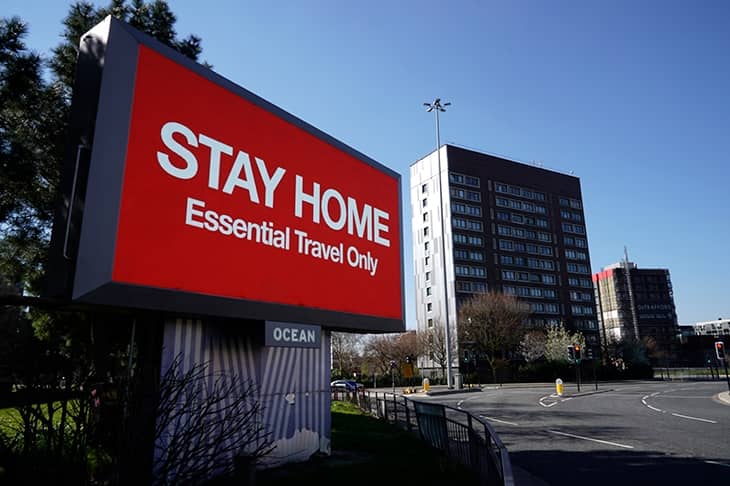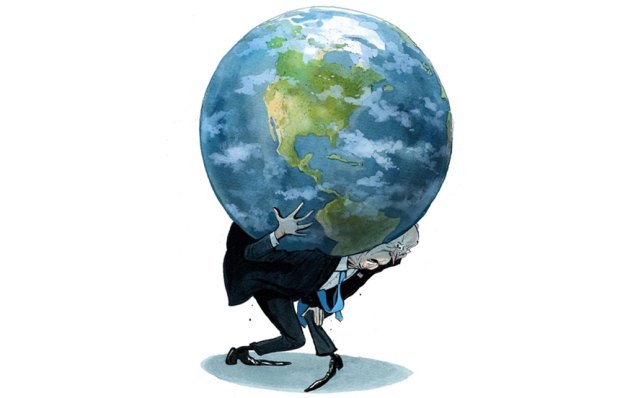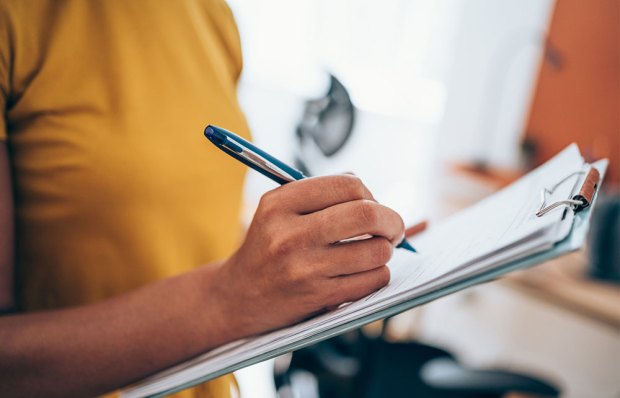If there’s one thing I misjudged completely, it’s how creepy and long-lasting the effects of lockdown on all of us would be. I’m not in this case talking about the catastrophic medical cost: the heart attacks and strokes, the missed diagnoses. If we’d let Covid rip, if we hadn’t locked down, I’m not sure there’d have been a functioning hospital to go to anyway.
What’s troubling me is the effect on our national psyche. Some of us are out and about — anti-vaxxers for instance — enjoying sprightly get-togethers, but others of us have retreated, withdrawn from outside life. Successive lockdowns have knocked us into hibernation mode and it’s not clear that we’re ever coming out.
Over the weekend the papers reported on the phenomenon of the Covid-era no-show. A franchise called Gusto with 12 restaurants across the UK reported that in the previous week 1,000 people had booked tables but not turned up. Other chains and restaurants were quick to agree and some sounded pretty desperate about it. For a small restaurant, a few missed covers is a big deal. To block other customers but not pitch up yourself is like an evil reverse of eat out to help out — book up to bankrupt. I’d hop on my high horse, have a go at the hypocrisy of clapping NHS workers while screwing restaurateurs, if I weren’t so aware of having booked up then flaked out several times myself.
Then there was the news that around 15 per cent of paid-for tickets to sports events and concerts are now left uncollected. These aren’t tickets that are being refunded; it’s not a sudden anxiety about spending that’s to blame, despite the rising cost of living. And I don’t think it’s fear of Covid either. You don’t book tickets to a game right now if you’re anxious about infection.
The working theory in the restaurant trade is that for people used to lockdown, going out is just too much hassle. Someone’s even cooked up a terrible acronym: Hogo (‘hassle of going out’), a replacement for Fomo (‘fear of missing out’). How very 2019 Fomo seems now.
And I do think Hogo is a phenomenon. I’ve heard more than one person say that over the last year they’ve deliberately halved the number of friends they have, and say it serenely as if they’ve rediscovered the joy of a simpler life, rather than set about coldly casting their former pals aside. We’ve all heard people mention, on the quiet, that they miss the long lockdown of 2020, and that they’d do it all again. But even so, I’m not sure that Hogo, staying in, retreating, is really a considered or even conscious choice.
It’s always been a hassle to go out, especially when it’s dark or raining, or when your friends want to meet in Notting Hill. Who doesn’t have an inner voice that says stay in, watch TV, let the baked beans tumble quiet-ly down your jumper?
What’s different, post-lockdown, isn’t the existence of that inner voice, but the fact we’ve started listening to it. Where once we might have groaned but got up to go, now we slowly sit back down: yes, inner voice, it is cold outside; yes, I do deserve a little rest. My theory is that during lockdown, in the absence of conversation and cognitive dissonance, we devolved power to our lizard brains, the impulsive, pre-rational, primitive part that prioritises comfort.
A modern neurologist will no doubt tell you that the lizard brain is an outdated concept: one much-admired psychology paper last year was called Your Brain Is Not an Onion With a Tiny Reptile Inside. But as far as I can see, onions or no onions, the best explanation for Hogo is that we ceded control to the lizards in our brains in the spring of 2020, and they don’t much fancy giving it back.
To book and then bail is very lizard-brain. If Hogo were simply a rational and thought-through desire for ease, there’d be no booking in the first place. A self-aware human would get antsy about wasting a ticket. But when we lizards spot something advertised that suits our sense of self — a classical concert, a hip new restaurant — it’s no sooner seen than paid for. And come the actual day, there’s no need really to turn up because what we’ve bought isn’t a live event so much as a jigsaw piece of self-image. And the weather’s bad. And a cough counts as a good excuse. So you bail for the same reason you buy: it’s the most instantly agreeable option. Pre-rational man doesn’t care. It just moves on.
I’d move on too, except for the worry that we might change irrevocably. What if reality bends around the spasm of Covid-induced Hogo and makes it permanent? More restaurants will fold, Deliveroo will flourish, and instead of buying and binning tickets we’ll all simply be dressing up in Mark Zuck’s metaverse, off to a virtual match without ever leaving home again. Meanwhile, outside, the real world with all its terrible real-world problems will be so much less painful, for being so rarely seen.
As I write this, I’m uncomfortably aware that this evening, in just a few hours, I’m due to attend a concert in the church around the corner. The tickets were sold to raise money for church repairs and when I bought them I enjoyed the clear mental picture of myself in a pew, smiling and neighbourly. Will I go? I can already hear the lizard whispering: there’s no time, and you’ve already done your bit by forking out, and wouldn’t it be nice to light a fire? I won’t go to the concert. I know I won’t. I’m just another no-show. And it’s not a choice, any more than it was a choice last night to eat the ice cream in the freezer. It’s capitulation.
Got something to add? Join the discussion and comment below.
Get 10 issues for just $10
Subscribe to The Spectator Australia today for the next 10 magazine issues, plus full online access, for just $10.
You might disagree with half of it, but you’ll enjoy reading all of it. Try your first month for free, then just $2 a week for the remainder of your first year.















Comments
Don't miss out
Join the conversation with other Spectator Australia readers. Subscribe to leave a comment.
SUBSCRIBEAlready a subscriber? Log in